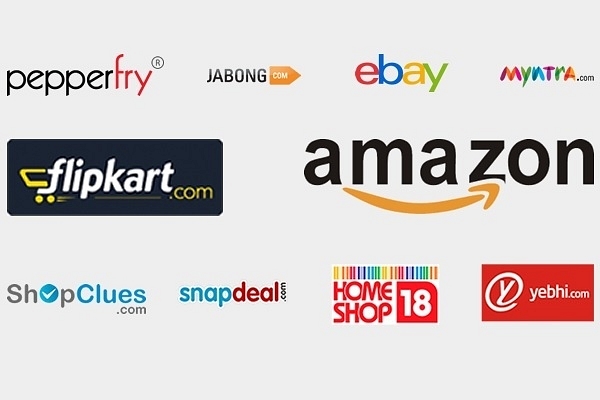Business
E-Tailing: Why Flipkart & Snapdeal May Not Survive As Standalones
- It is only a matter of time before global online marketplaces swamp Indian startups and take them over.

Flipkart Amazon
The Indian online retailing business is coming
down to earth. In recent months, investors have been quietly writing down the
values of their investments in Indian e-tailers, even as some segments of the
business – online groceries, for example – have begun downsizing and shuttering.
Everyone now realises that topline growth today will not necessarily guarantee future
bottomline growth. Only those with the deepest pockets will survive. The
underlying game has changed.
Consider some recent headlines.
Flipkart, says The Economic Times, is slipping in terms of market share. The
Indian online marketplace leader has seen its share dip from 43 percent of
shipments in March to 37 percent, while Snapdeal has seen shares slip by a
fourth from 19 percent to 14 percent. The gainer was Amazon India – the e-tailer
with the deepest pocket.
Desperate moves have already begun to reverse these slides. Snapdeal, suggests the same newspaper, has cut its fees to encourage sellers on its platform to pass on the benefits to customers and boost volumes. But this is a game that only those with deep pockets can play.
Last month, investors in Flipkart wrote down the values of their holdings in the company by a hefty $5-6 billion from a year ago. At the time of its last fund-raising effort in July 2015, Flipkart got a valuation of over $15 billion. A few months down the line, Morgan Stanley cut the value of its holdings in Flipkart by 27 percent in its books and T Rowe Price by 15 percent. Last month, Valic Co and Fidelity Rutland Square Trust II chopped values by 29 percent and 21 percent, bringing the valuation of Flipkart to around $9-10 billion.
In the online groceries business, there has been so much internal bleeding that few look like surviving. The rush for the exits began last year itself, when some of them shut operations in some cities. In January this year, Grofers began downsizing and closed operations in some cities. Local Banya and Peppertap followed suit. The only one showing signs of some strength is Big Basket, but don’t assume it will stick around. The intensely-local and intensely price-sensitive business of online groceries is not something that can sustain without ultra-deep pockets. The kirana store is not easy to beat in this segment.
So where does all this leave the future of e-tailing in India? Who are the likely survivors?
Two observations can be made as we gaze into an uncertain future.
First, given the capital-guzzling nature of the business, it is unlikely that any Indian-owned group will survive as a standalone business. Sooner than later, it is the Amazons and Alibabas that will hold sway, as only they can keep investing billions of dollars year after year to build scale, reach and margins. One cannot expect a Flipkart or Snapdeal to survive as independent entities too far into the future. They could become takeover candidates when the regulations allow for foreign acquisitions. The value they build in the next few years will help their investors exit with a small profit. In short, their game is likely to be about sell-out valuations.
Second, the online business is more likely to succeed when it becomes a subset of big platform businesses. Google, Apple, Facebook, Twitter, Amazon, etc are platforms that sell both physical and digital products, and also provide an environment around which other businesses can be built. This will be obvious from the sheer number of vendors and developers who build products around these platforms. Standalone e-commerce platforms in one country are tough to sustain, as gestation periods for breakeven get longer and longer.
The new digital business model is about first building a huge and sticky customer base practically for free, and then trying to sell them something to profit from. Google gave away its search and mail products free for years before it could build a huge customer base whom advertisers could target. In contrast, it is difficult to see what’s sticky about a Flipkart platform, when people are coming to it largely for the discounts offered. Online marketplaces will take a very long time to build the kind of stickiness of platforms like Facebook.
Alibaba became a profitable platform in China largely because it owned a near-captive franchise in the closed Chinese national market. It is difficult to see how a Flipkart or Snapdeal can become a big national platform when the Indian online world is already crowded. Snapdeal could at some point be Alibaba’s lunch.
It is only a matter of time before global online marketplaces swamp Indian startups and take them over.
Introducing ElectionsHQ + 50 Ground Reports Project
The 2024 elections might seem easy to guess, but there are some important questions that shouldn't be missed.
Do freebies still sway voters? Do people prioritise infrastructure when voting? How will Punjab vote?
The answers to these questions provide great insights into where we, as a country, are headed in the years to come.
Swarajya is starting a project with an aim to do 50 solid ground stories and a smart commentary service on WhatsApp, a one-of-a-kind. We'd love your support during this election season.
Click below to contribute.
Latest